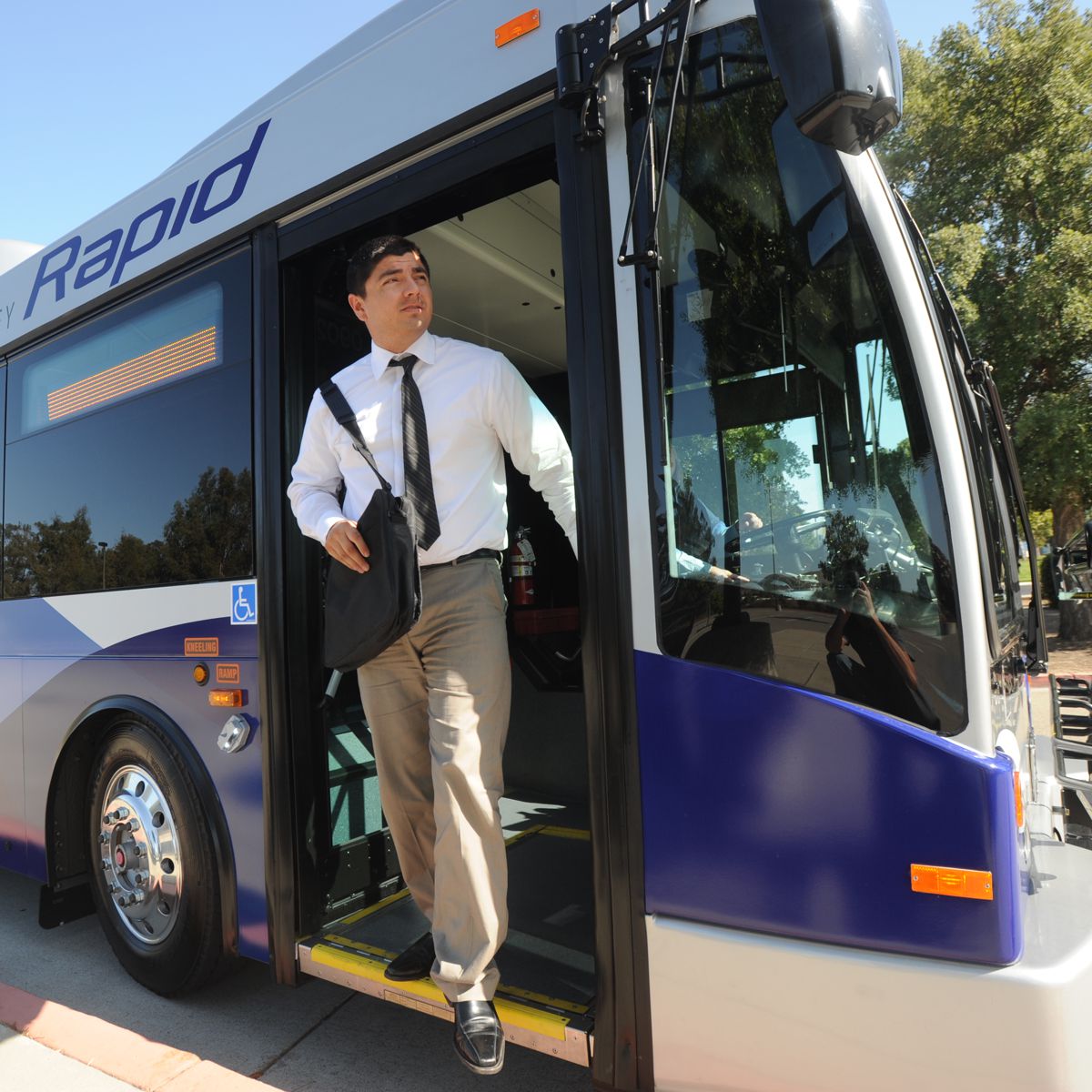Bay Area Commuter Benefits Program Marks 10th Anniversary
Bay Area Commuter Benefits Program Marks 10th Anniversary

In October, the Bay Area Air Quality Management District (BAAQMD) and the Metropolitan Transportation Commission (MTC) marked the 10-year anniversary of the Bay Area Commuter Benefits Program. The mandatory program requires employers in the region that have 50 or more full-time employees to enroll in the program, select the commuter benefit option they will provide, and identify how they will promote that benefit to employees. Options include a pre-tax benefit that allows employees to exclude transit or vanpool costs from taxable income; subsidies to cover or reduce employees' monthly transit or vanpool costs; employer-provided transit; a company-wide telework policy; or an alternative benefit that reduces single-occupancy commute trips.
BAAQMD and MTC have mailed thousands of courtesy notification letters of noncompliance to employers whose registration has lapsed and to employers who have not yet enrolled in the program. Annual updates are part of the program requirements. The BAAQMD and MTC developed the Bay Area Commuter Benefits Program in response to Senate Bill 1339, which was signed into law by then-Governor Jerry Brown in September 2012. After a two-year pilot program, Air District Regulation 14, Rule 1 was adopted by its board of directors in March 2014. The goal of the program has been to reduce greenhouse gas emissions and traffic congestion by using the federal tax code to encourage employees to commute via alternatives to driving alone. MTC is the transportation planning, financing and coordinating agency for the nine-county San Francisco Bay Area. BAAQMD is the regional agency responsible for protecting air quality in the nine-county Bay Area. When the pandemic halted much of the Bay Area commute, BAAQMD paused notification activities for the Bay Area Commuter Benefits Program. A grace period for employer notifications was put in place while enhanced regional outreach activities were conducted to reeducate employers and employer organizations about the program.
"Now is the time employers can implement transformative change in both our workplaces and on our roadways, creating lasting benefits for our environment and our health," according to Davina Hurt, Belmont City Council member and Air District Board Chair. "By embracing sustainable commuting solutions, employers help improve the quality of life for all Bay Area residents, especially those disproportionately affected by transportation-related pollution."
"Congestion on many of the region's highways and bridges has now surpassed pre-pandemic levels, and that increase can negatively impact the Bay Area's economic growth," says Jim Wunderman, Executive Director of the Bay Area Council. "Employers can play an important role in addressing our traffic problem by encouraging their employees to examine their commute habits and take full advantage of the many valuable benefits available to use transit."
Hacienda offers one of the most comprehensive commuter service programs in the nation. Hacienda tenants who must comply with the rule meet the requirements of the Bay Area Commuter Benefits Program simply by giving employees access to the award-winning resources Hacienda has already assembled. Moreover, Hacienda's national status as a Best Workplace for Commuters allows Hacienda companies a valuable opportunity to promote themselves nationally as commuter-friendly workplaces as well.
To enroll in the Bay Area Commuter Benefits Program or to update their status, employers should visit the program website below. Registration is free and takes approximately 15 minutes. For additional assistance, the program team may be reached at (510) 285-3183 or commuterbenefits@511.org. For more information about the Bay Area Commuter Benefits Program, please visit www.511.org/employers/commuter-benefits-program.
For more information about the Bay Area Air Quality Management District, please visit www.baaqmd.gov.
For more information about Hacienda’s commute solutions, please visit www.hacienda.org/amenities/employees-residents/commute-solutions.
Photo by Wheels Rapid Transit




